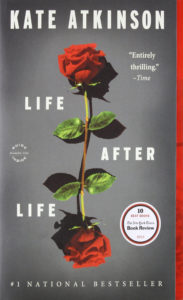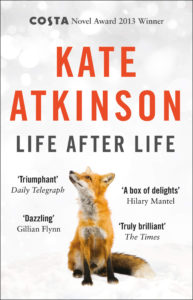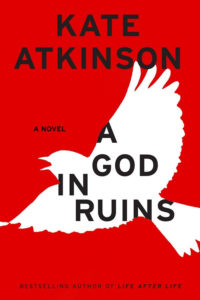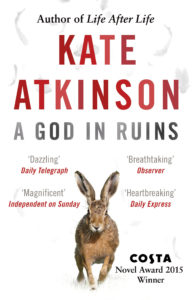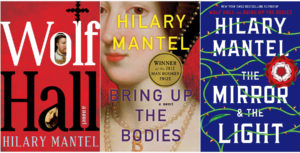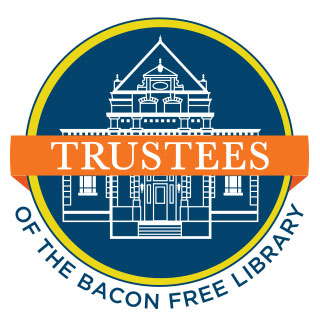WORDS OF WISDOM…WORDS OF COMFORT
By Martha E. Fagan, RN, BSN
Poetry can be a salve for the soul during difficult times as it surrounds us with words of comfort and beauty.
I selected a few of my favorite poems to share with you hoping they will soothe your spirit as they do mine. I find myself coming back to these time after time when I need a reminder to stay present, notice nature’s beauty and the presence of love in our world.
The 13th century Sufi mystic and poet Rumi wrote the poem The Guest House to remind us to be with whatever life brings to us. Whether it comes in the form of a joy or a great difficulty, Rumi encourages us to open ourselves to whatever life brings us – letting ourselves feel all the emotions—good and bad.
Our attitude and commitment to greet whatever life sends our way without fear or loathing, and with whatever subtle faith we can muster, allows us to become wiser, kinder and more compassionate to self and others.
The Guest House ~ Rumi
This being human is a guest house.
Every morning a new arrival.
A joy, a depression, a meanness,
some momentary awareness comes
as an unexpected visitor.
Welcome and entertain them all!
Even if they are a crowd of sorrows,
who violently sweep your house
empty of its furniture,
still, treat each guest honorably.
He may be clearing you out
for some new delight.
The dark thought, the shame, the malice.
meet them at the door laughing and invite them in.
Be grateful for whatever comes.
because each has been sent
as a guide from beyond.
Mary Oliver’s poetry reminds us to stay amazed in nature and all her beauty. She spent her life walking the beaches, dunes and woodlands on the outer Cape, writing of the flora, fauna and creatures she encountered along the way. Her love of nature and animals is woven throughout her work. Recognized as one of America’s greatest contemporary poets she died last year at the age of 83, still writing until the end.
I chose the poem Why I Wake Early as it makes me smile every time I read it. Each day is a new day and the sun is above guiding us along even when we may feel lost.
Why I Wake Early ~ Mary Oliver
Hello, sun in my face.
Hello, you who make the morning
and spread it over the fields
and into the faces of the tulips
and the nodding morning glories,
and into the windows of, even, the
miserable and crotchety–
best preacher that ever was,
dear star, that just happens
to be where you are in the universe
to keep us from ever-darkness,
to ease us with warm touching,
to hold us in the great hands of light–
good morning, good morning, good morning.
Watch, now, how I start the day
in happiness, in kindness.
In The Summer Day we’re called to notice and take the time to be present right here, right now—to be rather than to do.
The Summer Day ~ Mary Oliver
Who made the world?
Who made the swan, and the black bear?
Who made the grasshopper?
This grasshopper, I mean–
the one who has flung herself out of the grass,
the one who is eating sugar out of my hand,
who is moving her jaws back and forth instead of up and down —
who is gazing around with her enormous and complicated eyes.
Now she lifts her pale forearms and thoroughly washes her face.
Now she snaps her wings open, and floats away.
I don’t know exactly what a prayer is.
I do know how to pay attention, how to fall down
into the grass, how to kneel in the grass,
how to be idle and blessed, how to stroll through the fields
which is what I have been doing all day.
Tell me, what else should I have done?
Doesn’t everything die at last, and too soon?
Tell me, what is it you plan to do
With your one wild and precious life?
In Wild Geese the poet encourages us to embrace who we are and the choices we make along our way, to feel our shared humanity and be reminded of the beauty and order of nature and our place within it.
Wild Geese ~Mary Oliver
You do not have to be good.
You do not have to walk on your knees
for a hundred miles through the desert repenting.
You only have to let the soft animal of your body
love what it loves.
Tell me about despair, yours, and I will tell you mine.
Meanwhile the world goes on.
Meanwhile the sun and the clear pebbles of the rain
are moving across the landscapes,
over the prairies and the deep trees,
the mountains and the rivers.
Meanwhile the wild geese, high in the clean blue air,
are heading home again.
Whoever you are, no matter how lonely,
the world offers itself to your imagination,
calls to you like the wild geese, harsh and exciting –
over and over announcing your place
in the family of things.
Langston Hughes was an American poet, social activist, novelist and playwright. He’s best known for his writings on black life in America from the twenties to the sixties. He wrote in a way that was accessible to all, using language and themes of shared human experiences.
I’m ending with a quote of his rather than one of his poems. This quote expresses beautifully where we find ourselves now in the “mean” times of life, the pain and the challenge. This pandemic is frightening on so many levels and though each of our experiences is different we’re all in this together, navigating as best we can each day. Finding some “love” around us just may be our best way to find solace.
“Folks, I’m telling you,
birthing is hard and dying is mean—
so get yourself a little loving in between.”
~Langston Hughes
Martha Fagan is the Vice Chair of the Bacon Free Library. She may be reached through her email her at mefagan.bfl@gmail.com
